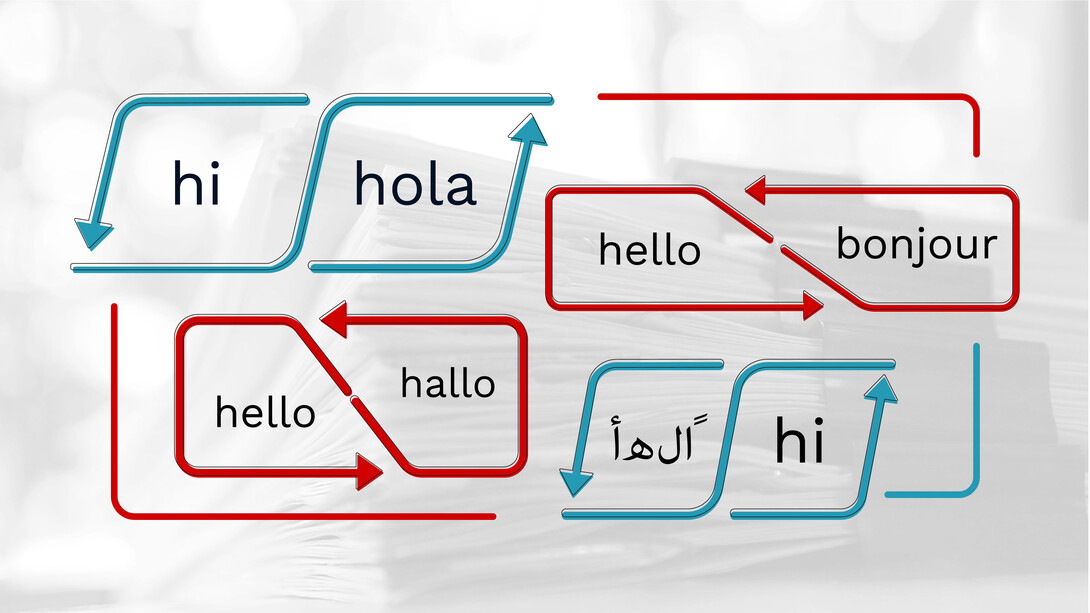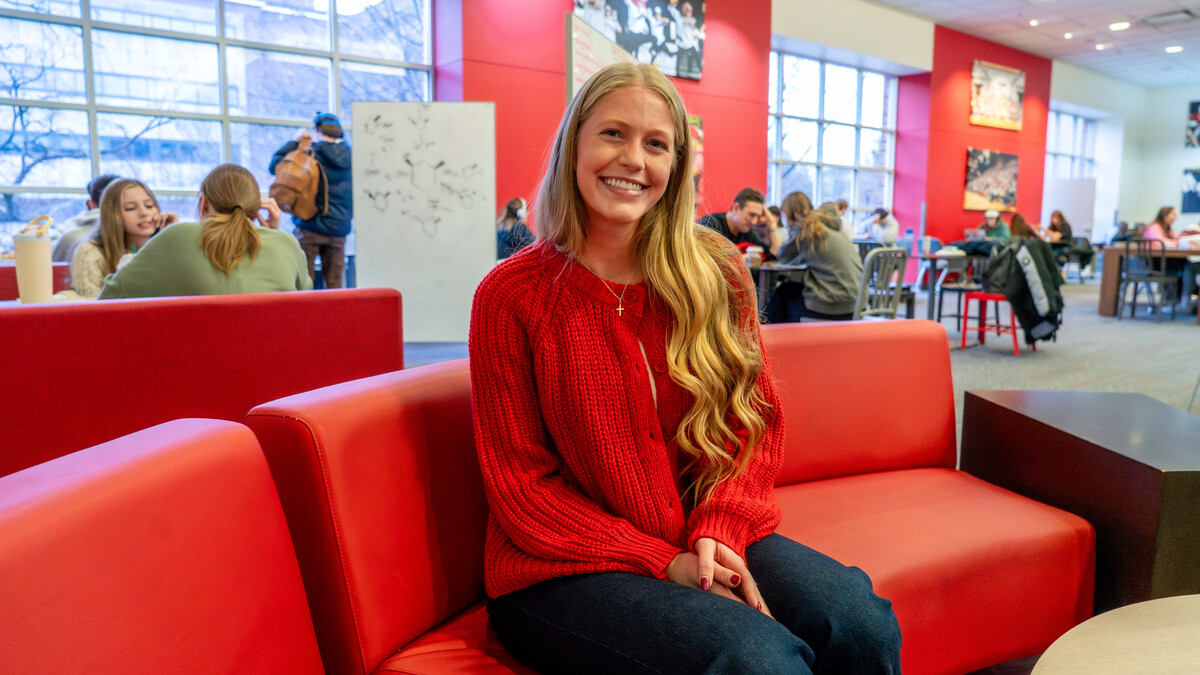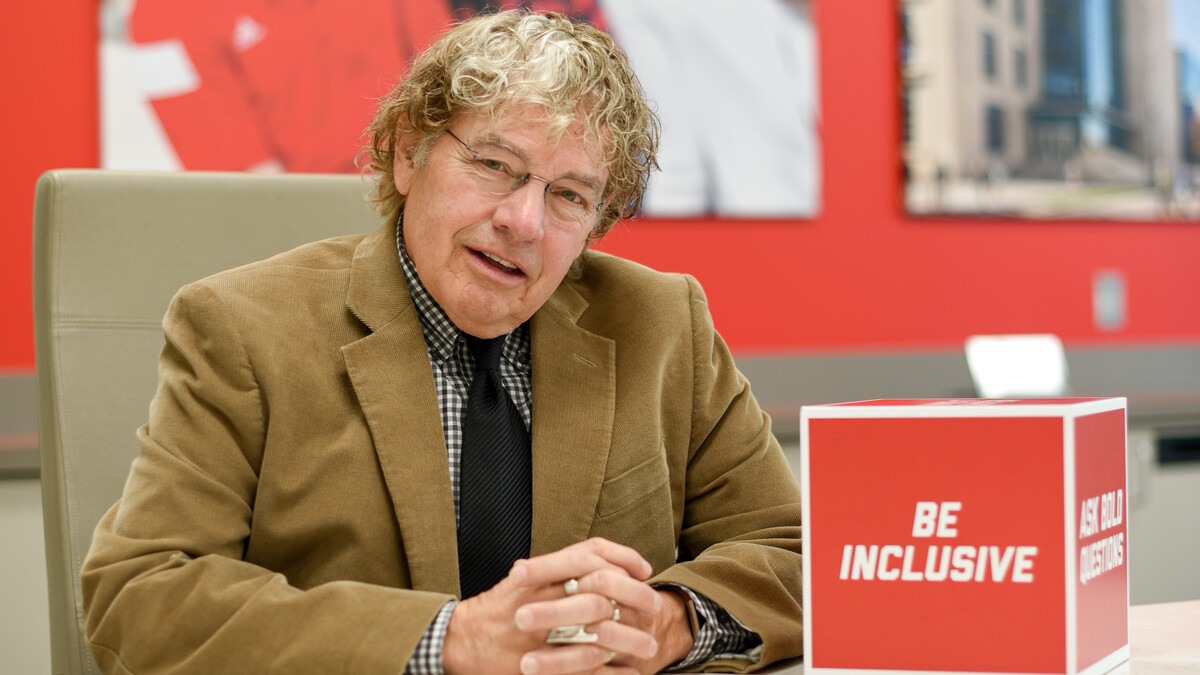
A University of Nebraska–Lincoln partnership is connecting non-English speakers with services and opportunities across the Cornhusker state.
The Nebraska Translator and Interpreter Corps was launched in 2020 by the University’s Department of Modern Languages and Literatures and the Bureau of Sociological Research. Its mission is to provide quality, affordable translation and interpretation services while offering professional experience for graduate students.
“It’s always good to offer,” said David Diez Laso, a graduate student in Spanish and coordinator of the translator and interpreter corps. “I don’t see a downside. We’re able to reach people that otherwise might not consider those services.”
A recent success provided translation services to CEDARS, a nonprofit that supports youth and families in Lincoln and Omaha. Reading paperwork in their native language increases clients’ understanding of the content and trust with the organization.
“Presenting their first encounter with us in their native language is just one thing we can do to make them feel more at ease at a time when maybe things are not in a normal space,” said Kristin Jakub, vice president for communications at CEDARS.
About 16 members of the translation corps provide services in Arabic, English, French, German and Spanish. Diez Laso, an international student from Spain, said the most common requests are for Spanish, followed by Arabic.
The nonprofit first utilized the service about two years ago on a project involving foster care paperwork. They came back to the university service recently for translation of client intake paperwork into Spanish and Arabic. The organization regularly uses interpreters when clients do not speak English as their first language but wanted to increase access further.
Jakub said they returned because the previous experience was smooth and quick. She said the group’s rates are also more affordable than some other translation services, making it even more accessible to an organization such as a nonprofit.
“As a nonprofit, we know we need to have some of these documents translated, and we don’t have a lot of resources,” Jakub said. “This has a been a really affordable option for us, and that is so much appreciated.”
Sarah Kasson, associate director of contracts, licensing and accreditation, said having the paperwork in multiple languages helps their clients understand their rights and their role more clearly. Rather than telling clients what to do, it builds trust that the organization is prioritizing their needs and everyone is working together, she said.
“The more information we can provide to them, the more they feel some ownership and feel like they’re an active partner,” Kasson said. “This is that very first step to help them feel like we really are partnering with them.”
Diez Laso said their services can be especially useful in situations like these when the information is highly technical. The translator corps has also recently worked with an organization that was training medical aides, where the stakes of having accurate information are extremely high.
“When that information is missing, the consequences might be big,” Diez Laso said. “The more precise the information you provide them with, the better it’s going to be at the end.”
Some translation services specialize in one area, such as legal documents or audio translation, but the university service does not. Diez Laso said in a community as large as Lincoln, there are people from all around the world, so for people who do not speak English as their first language, translation helps from both a practical and mental perspective.
“If their level of proficiency is not as good, they can relax because it’s their native language they’re receiving,” Diez Laso said. “That’s a million times easier.”
Kasson said this comfort is one of their goals when working with clients. CEDARS serves many people who have come into the community as refugees and others who might be going through a period of disruption or uncertainty, and having one familiar thing can be helpful.
“If we can make one thing easier, take away one unknown, one aspect of that disorientation of being in a completely new environment, we definitely want to do that,” Kasson said.
Learn more about the Nebraska Translator and Interpreter Corps.







